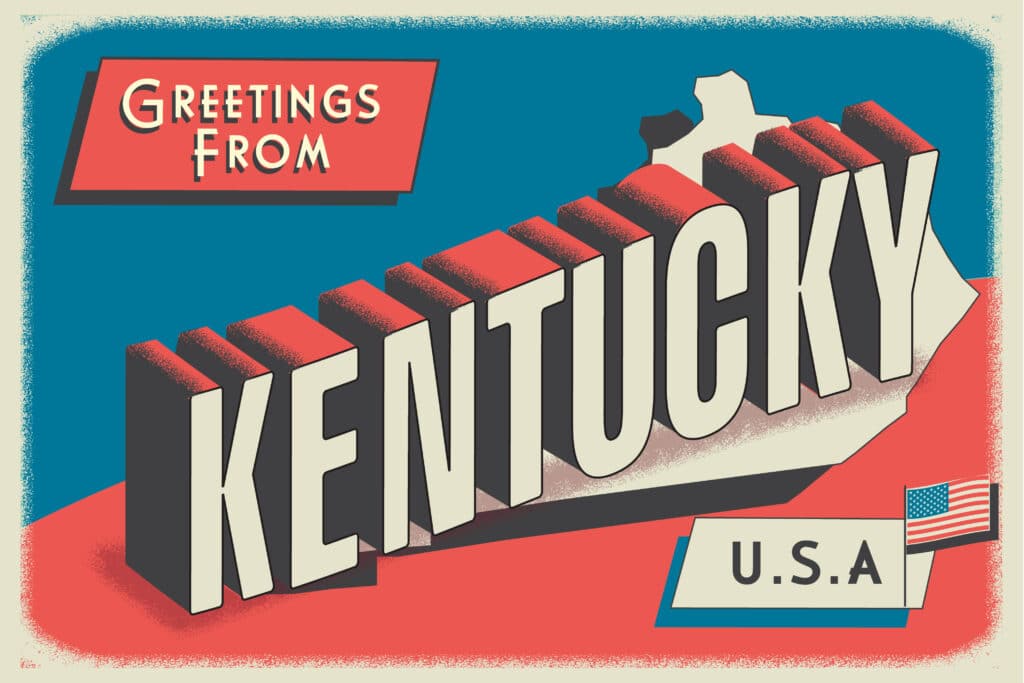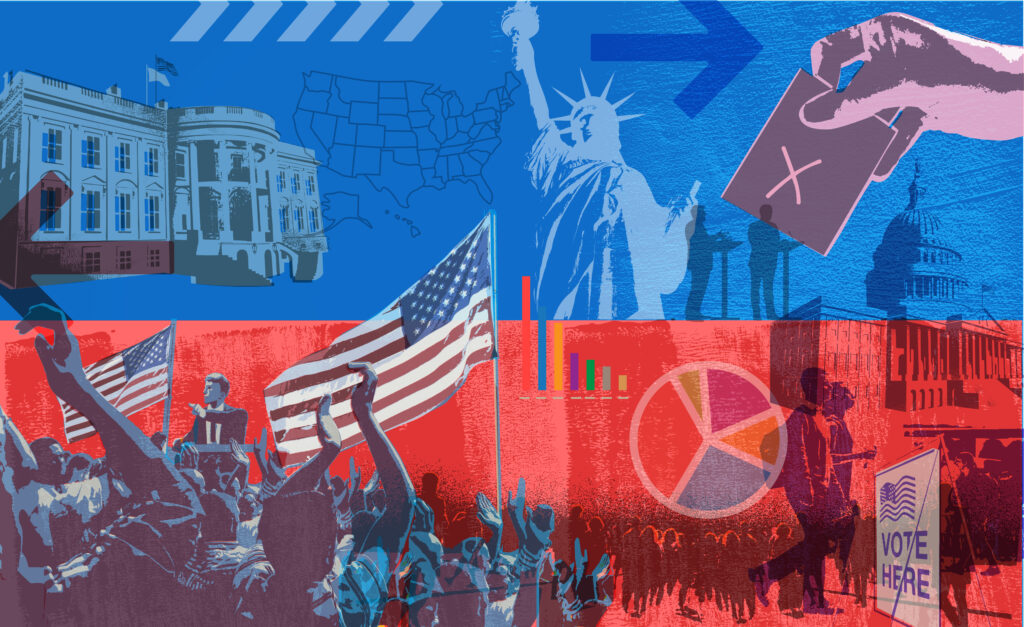

In this episode of the Personal Lines podcast, Ed Cha shares how his career path led to the insurance industry, says why he finds learning a reward for his job, and dives deep into the problem-solving intricacies of his role.
Read the Transcript
Disclaimer: Podcast transcriptions are computer generated, please excuse errors. For the most accurate version of the conversation, please refer to audio.
Ed Cha:
I think if you see some of the crashes in 2008, 2020 with COVID, the insurance industry and all the companies, the brokerage firms, the insurance companies, they keep trending up and to the right. I think that resilience is key to a lot of this.
Zach Ewell:
Welcome to the Leader’s Edge podcast. I’m Zach Ewell, content producer here at Leader’s Edge. In this episode of our Personal Lines podcast series, associate editor Chris Hann interviews Ed Cha, Head of Global Insurance at Newfront. Cha shares why he chose to work insurance as a career path, what he finds rewarding about his job, and dives deep into the problem-solving intricacies of his role. Give it a listen.
Chris Hann:
Okay. We are here with Ed Cha, the Head of Global Insurance at Newfront and the fairly new chair of the International Working Group at CIAB. Ed, thank you very much for taking the time to talk with us.
Ed Cha:
Thanks for having me, Chris. Appreciate it.
Chris Hann:
You’re very welcome. You grew up, you mentioned, in the northwest suburbs of Chicago, Lincolnwood, Illinois. Tell me about Lincolnwood, Illinois.
Ed Cha:
It’s interesting, when you live in a suburb of Chicago, when people ask you where you’re from, a lot of people would just say Chicago. Then if you’re from Chicago, they say, “Okay, are you really from Chicago or what suburb are you from?” It could be 10 minutes outside of Chicago or it could be three hours outside of Chicago. I’m very cautious. I think every time someone asks me that, I say something different.
The technical bit would be northwest suburb of Chicago, Lincolnwood, Illinois, right outside the outskirts, and a great place to raise a family and grow up. I have a great group of friends that I grew up with and even went to university together. We all stayed pretty close. I feel very fortunate growing up in the Midwest and having the childhood that I did.
Chris Hann:
You’re still in the neighborhood, so to speak.
Ed Cha:
I am. My wife is from Peoria, Illinois and that is how I came to be in this area. Technically, the city is Dunlap, similar to Chicago. It’s a suburb of Peoria. It’s called Dunlap, Illinois. It’s three hours south of Chicago. My wife and I met at University of Illinois Urbana Champaign, and she’s from Chillicothe, Illinois, another suburb of Peoria. We decided to move here and raise our children here.
Chris Hann:
Okay, you’ve been there for how long?
Ed Cha:
That’s a great question. I’ve moved around so much. I would say been here about eight years in Dunlap. Our oldest is 15 and our youngest is 12. Two boys.
Chris Hann:
Oh, boy. All right. I’m sure they keep you busy.
Ed Cha:
Absolutely. With all the travel, sports, and all the activities and graduations and things like that, life just goes by really quickly.
Chris Hann:
When you were growing up, what was your favorite class in high school?
Ed Cha:
That’s a great question. I would say physics because they would do all these experiments and things in the classroom that you could see is relevant to what’s going on in the world in terms of the speed of a car, how fast you have to go to break the atmosphere and get it out into outer space. That was always really fascinating to me.
I really think it’s up to the teacher to explain very complex terms in layman’s terms. That was always very hard, finding a teacher that can do that and excite people.
Chris Hann:
Did you have a favorite teacher or most influential teacher?
Ed Cha:
I don’t want to single it out, but I would say all of them. The reason for that is I really respect teachers in what they do and the career path that they chose and giving back to society. I think that’s huge. Shout out to all the teachers that are out there currently or studying to become a teacher. It really is the backbone of our economy and our world in terms of where people find themselves, learn people skills, learn academics, and go to that next level.
Sometimes it’s a thankless job, sometimes it isn’t, sometimes it is. There’s a lot of trials and tribulations, just like any career. I think this is one that really impacts our children from a very young age to going to university to grad school, to PhD programs.
Chris Hann:
My mom was a high school teacher, so I’ll second everything you just said.
Ed Cha:
There’s lot of sacrifices. You see teachers these days spending their own money to help with the classrooms and whatnot. Being a parent, you really see how dedicated they are where they’re not getting paid, they’re volunteering to go to every single event. They’re there. It’s not a 9 to 5 job. They’re there on the weekends, coaching, mentoring, helping out where they can.
They’re also dealing with this new generation of social media and phones and devices where, when I was growing up, you were cool if you had a beeper and that just had numbers on it, let alone games and things like that and social media accounts. It’s a completely different game now and I respect every single teacher out there for that.
Chris Hann:
You went into college as a pre-med student. Tell me about that decision.
Ed Cha:
I would say there’s that drive from parents in becoming a doctor and having a successful career doing that. The first two years I took biology, chemistry, all the pre-med courses and it wasn’t what I loved, and you have to be passionate about it. I took the big risk in junior year, decided to switch into mathematics and chemistry and that is what I was naturally good at, so that’s where I gravitated towards. Switching junior year was tough, taking a lot of catch-up classes and things of that nature. I think university is one of those things where a lot of people figure out who they are and what they want to do, and a lot of people do go to university undecided.
For me, I picked a major and decided to switch midway. I was going to be a math professor and was going to study, go to graduate school, go get my PhD. Along that path as well, I decided to go into business. After going into business, one of my professors said, why don’t you start taking some actuarial exams? I’ve never heard of what it is to be an actuary. It was quite intriguing to me. I took a couple exams. It helped me get an internship at CNA Insurance and Mercer, and then found myself having a full-time position at Mercer, being in the insurance industry.
It’s funny because I always say this, no one ever says that they want to be in the insurance industry when they’re a little kid. I remember going to career day for one of my sons and I am in the insurance industry. But you have the policeman there, you have firemen there, you have the engineer, and they’re explaining what they do, and you go up there like “I’m in insurance.” That’s probably the least cool thing you could say either at a career day or at happy hour, “I’m in insurance.”
My mind has evolved in terms of, this is one of the best industries in the world. It’s potentially one of the oldest industries in the world and it’s one of the most stable. If you see some of the crashes in 2008, 2020 with COVID, the insurance industry and all the companies, the brokerage firms, the insurance companies, they keep trending up and to the right. I think that resilience is key to a lot of this.
One of my great mentors, Brian Hetherington, which is the president of Newfront, he always quotes that insurance makes dreams happen. It’s because a lot of companies that are started, it’s a mandatory thing or something that you should get to further that company. If you have a car, you need car insurance. If you have a house, you need house insurance, you need business insurance. If you think about it, it’s one of the mandatory and critical things in any aspect of any organization, whether it’s tech, energy, oil, biotech, et cetera.
It got me thinking, insurance really is helping the world get to a better place. There’s a catastrophic loss, there’s the insurance companies that are there to help out, so it’s being very proud of being in insurance, and also showcasing to the younger generation that this is a great career path. Again, might I say, least sexy thing to say, being in insurance, but once you drill down to it, it’s such a cool industry to be in.
Chris Hann:
Did you surprise yourself when you found yourself in this industry and say, this is not something I ever expected.
Ed Cha:
100%, yes. I think it’s twofold. One, I’m in insurance, and two, I’m in global. Those two things I never anticipated my career going into. Let me start with the global piece. I feel so blessed that every single day, year that goes by, I feel like I’m being paid to learn. There’s something that, every day, I learn something new about. There’s no way that I can know all about the insurances and Singapore, France, Germany, Canada. Every day is a learning experience and I get to speak and interact with folks from all over the world on a daily basis. You learn different cultures and intricacies and the world just keeps getting larger and larger once you realize, I’m just not in this little bubble.
I think it had a profound impact on me, not only from a business perspective and being able to go into a niche industry, a niche specialty, but having friends and business partners all around the world. I am so happy that happened and feel so lucky that I fell into this. I feel like I could go to almost any country and have a friend there that’s able to take me around and help me understand the culture of that country.
It also gave me a very big perspective on just life in general, different countries’ viewpoints on politics, on insurance. It’s very good to understand how people view the world in a different lens. I think the most polarizing right now is we obviously like to think we know how Americans think of politics in the US. It’s completely different in Canada, in Argentina, in Brazil. It’s great to get other people’s insight and also communicate and inform them on what actually is happening here as well. What they get is tidbits of social media and the press and that could be obviously through different lenses as well.
Chris Hann:
Let me ask you about your work in the global part of the industry. Is that something that you sought out? How did that happen?
Ed Cha:
It’s great. I volunteered for a position in the global space at Mercer when I started out in my career early on and just fell in love with it. It was so eye opening. Once I started in that, after a few years in the space, I had one of my first mentors, Patrick Hickey, who just recently retired, he was building out the international benefits practice at Wells Fargo Insurance, which was acquired by USI. He brought me on, and we helped build out that practice over at what is now USI. It opened my eyes to everything in terms of what I thought and I could assume was not really the case. It also helped me immensely just personally as well, saying you can’t assume anything. Something that’s true in Argentina is not true in Brazil.
Once I fell in love with it, I continued and knew this was my career path. I focused on global and non-U.S. insurances and wanted to continue to help and be a strategic partner to the clients that I help in terms of expanding outside of either the U.S. or outside of their home country, whether they’re headquartered in France or Germany or Singapore and helping them that way. That really has been probably the largest passion of mine, is making sure that they know what to do. I always say my over two decades of experience consulting companies expand globally really is all the mistakes that I’ve made, I just don’t repeat them twice. Those are the things that I inform my clients on of what not to do because I’ve already been there and fallen on my face.
Chris Hann:
Somebody said if you learn from your mistake, it’s not a mistake, it’s a lesson, right?
Ed Cha:
Absolutely. They say if a smart person learns from their own mistakes, a wise person learns from someone else’s mistakes.
Chris Hann:
With your global responsibilities, what is your travel schedule like?
Ed Cha:
It’s interesting. Pre-COVID, I was traveling every month, probably a week at a time, back and forth to different locations, primarily to Silicon Valley, where our headquarters is in San Mateo, California. This was when Zoom and GoTo Meetings and things like that were not as prevalent, so face-to-face meetings.
Post-2020, everything went video conferencing and clients were okay with that. Internal HR people, operations, were okay with internal meetings going virtual. That has been a majority shift in terms of, not only for Newfront, but for companies and clients. We could just jump on a Zoom and have a conversation like we are here, Chris.
I would say the global conferences, I still travel globally, at least one country outside of the U.S. a year. It really is critical when you’re doing business, whether in the U.S. or any other country, to have that face-to-face interaction and getting to know someone because you want to work with people that you like and people that you know. Having that deeper connection and being able to say, hey, I know Chris’s family, or I know Chris’s mom was a former high school teacher. These things help when you’re in a fire drill and something happened and you need something done. It’s, hey, I know Chris. He’s not just another email. He is someone that I actually know and I want to help out and I’m going to get this for him right away.
It’s been pretty brutal in terms of traveling in general. Airlines are overbooking and there’s a lot of chaos just going through security. I would say 20 years ago, it was a pleasure traveling commercial. Nowadays it could be very stressful because you don’t know how many cancellations or delays there’s going to be. There’s a high stress level when you’re even just boarding the plane, from trying to get your carry-on in the overhead compartment because no one wants to check a bag anymore, all the security things and going through customs. It’s been quite a turnaround in terms of traveling, but it’s still prevalent and I think it’s increasing. I think the travel industry will continue to increase as we come out of the 2020 COVID pandemic.
Chris Hann:
Along those lines, you sent me a bio, and I thank you for that. You mentioned that travel is something you like to do when you’re not working, and I’m wondering if that interest came about through your work in the industry or have you always been a traveler?
Ed Cha:
It’s interesting. I remember my first backpacking trip was when I was in university. I backpacked through Costa Rica with a bunch of my friends. That really, again, opened my eyes in terms of how small my bubble was before that. After that, it really molded who I am. Once I found that I could travel globally with my career where there was a business case to do that, and sometimes even a requirement, it was a match made in heaven.
One of my mantras is, instead of spending money on materialistic things, I want to spend money on experiences and travel. I think that was a big, major shift in terms of, I think some people like myself were chasing salaries and compensation and things like that when you’re younger in your career. When you get more mature, you start realizing none of that really matters. It’s really the experience and how you treat the people in front of you and how you treat people when they’re not there as well, and just being kind and generous and giving without wanting anything in return. A lot of these mantras just coincide with the career and the career path that I’ve chosen.
Chris Hann:
What do you think gives you your leader’s edge in this industry? What makes you an effective leader?
Ed Cha:
Another great question, Chris. I say my philosophy always has been being a technical expert and a strategic consultant. At the end of the day, our job is to make sure that we’re adding accretive value to our company and our clients. If there’s a problem or an issue that a client has, we have to solve it or we have to know who to go to solve it.
I think the other piece of that is being an advocate for your client. Chris, if I’m a client of yours, if you have a fire drill or an issue that comes up, your reputation is on the line to get that solved. You need an expert that you can go to that either can tell you what the answer is to solve that issue or know someone who can get that answer for you. It could be the most random thing: How do I transport a million dollars in cash from Costa Rica to the U.S.? It could be, I have a situation where we have an employee that was skiing in Canada and needs a helicopter to evacuate to the U.S. or we have government contractors in war risk countries, how do we make sure that they’re insured? Or we need asset with one of our employees because they’re going to a high-risk area, how do we get them the security and protection that they need?
A lot of these random questions and situations that come up, they need a true expert that’s able to help them find that solution and knows what to do in that scenario and, quite frankly, be available 365 24/7 a year, because being in global, our work week is Monday through Friday. Middle east, their Friday is Thursday. With time zone differences, people are starting to work Sunday night where we’re just winding down on our weekend. Business never sleeps. If there’s a holiday in the UK, it’s not a holiday in the U.S. or a holiday in Canada. Different religions have different holidays, different cities have different holidays.
Being able to know that you have a consultant and a leader and an expert that can get you what you need to solve an issue. They’re not just trying to cause a problem, they’re coming to you because they have a serious situation, and they need a solution for it. There are so many complex issues out there in the world and they need people who have experience, have been there, done that, don’t freak out when a situation happens, and know exactly who to call to get it remedied.
Zach Ewell:
That was associate editor Chris Hann interviewing Ed Cha. I hope you enjoyed it. For more episodes of our Personal Lines podcast series, go to leadersedge.com.




